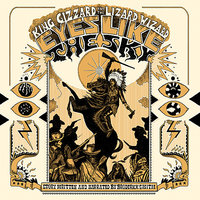| Fort Whipple |
|---|
| The Americans took the trussed-up boy to a place called Fort Whipple |
| A fly-blown group of tents surrounded by a stone and timber stockade |
| An American called Willis was the boss there |
| And he glared at the man of God as he entered with his captives |
| He noticed the boy when he was brought in with a few Yavapai girls |
| And he looked into the color of his eyes |
| «What do you make of him?» |
| he asked the God-man |
| «He may be the young, O’Brien boy who was lost here years ago |
| Or he could be from the Jebson party that never made it to New Mexico,» |
| said the God-man back |
| They named the boy Jebson O’Brien |
| But the natives and frontiersmen called him «Blue» because of his eyes |
| But also because of the awful and most sad expression he carried on his face |
| The expression of someone who kills with compassion but not mercy |
| Although he was still a boy, the men mostly kept away from him, all except for |
| one |
| A trapper who understood his skills, and in return, fed him and taught him the |
| white man’s way |
| In a short while, he could speak, and read, and write their language |
| And he also added the calm, fast dignity of a gunman to his arsenal |
| He was so fast that men treated him with care |
| But he was slow to anger and when angry, swift and final in his reply |
| In the Arizona desert in the 1860s |
| He had every skill that you needed to survive, and he was just 17 |
Lyrics Fort Whipple - King Gizzard & The Lizard Wizard

Song information On this page you can read the lyrics of the song Fort Whipple , by -King Gizzard & The Lizard Wizard
Song from the album: Eyes Like The Sky
In the genre:Иностранный рок
Release date:21.02.2013
Song language:English
Record label:Flightless
Select which language to translate into:
Write what you think about the lyrics!
Other songs by the artist:
| Name | Year |
|---|---|
| 2021 | |
| 2019 | |
| 2021 | |
| 2021 | |
| 2019 | |
| 2021 | |
| 2020 | |
| 2019 | |
| 2014 | |
| 2021 | |
| 2020 | |
| 2019 | |
| 2019 | |
| 2020 | |
| 2020 | |
| 2019 | |
| 2019 | |
| 2019 | |
| 2019 | |
| 2019 |